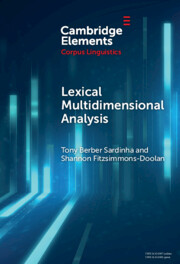1 results

Lexical Multidimensional Analysis
- Identifying Discourses and Ideologies
-
- Published online:
- 07 February 2025
- Print publication:
- 27 February 2025
-
- Element
- Export citation

